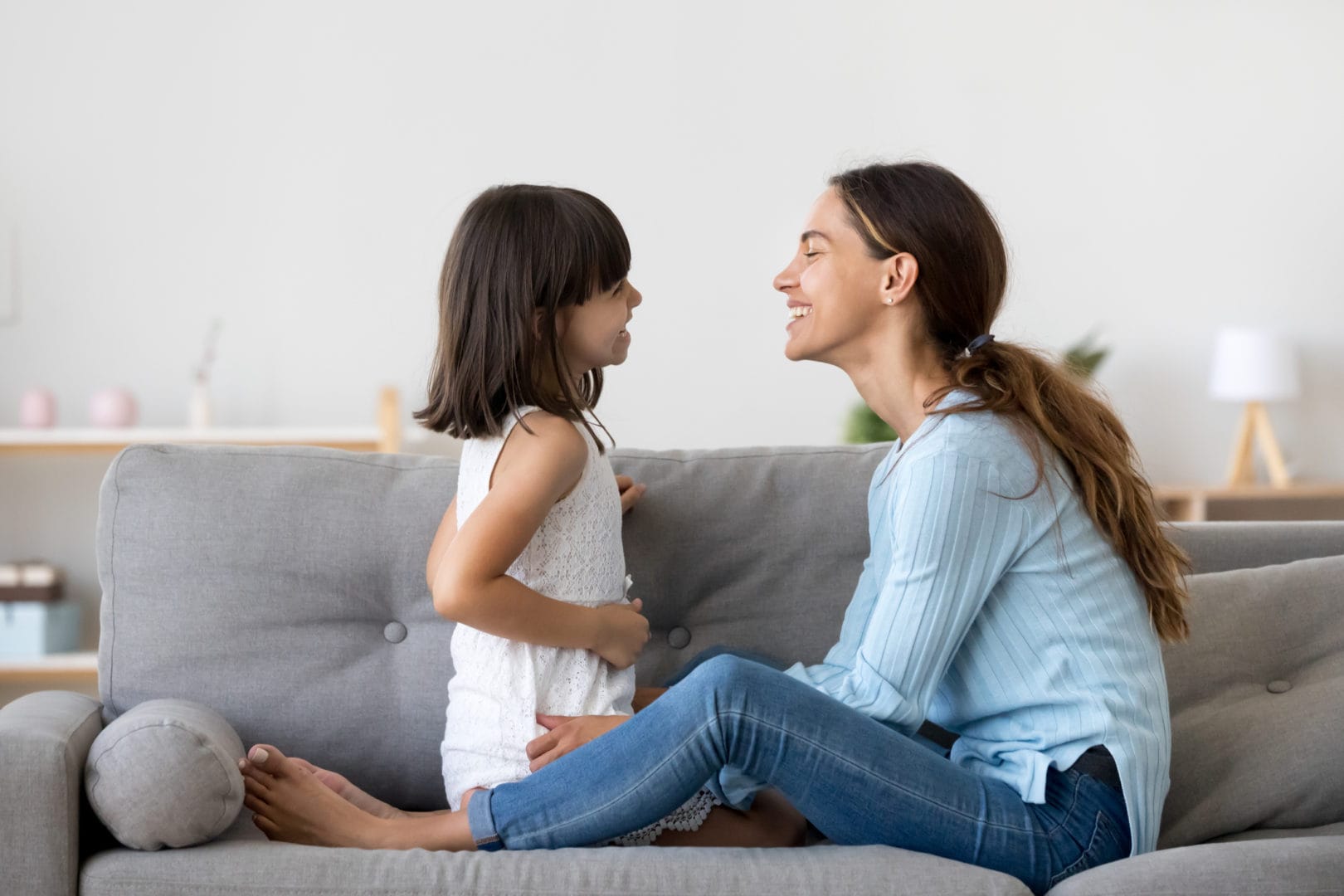My friends who don’t babysit or who aren’t used to spending time with children often struggle to grasp how I manage as a sitter. Their questions often make me laugh — like, “Ew, do you have to change diapers?” when it’s a 6-year-old I’m going to watch, or “You really have to be responsible for a whole child’s safety?” But one question I get a lot might be something first-time babysitters are wondering, too, and that is how to talk to kids, and what exactly do you talk to the kids about?
Believe me, sometimes it’s hard to talk to kids! But there are some tricks to getting a conversation going with them. Here’s what I’ve learned on the job.
1. Jump into what they’re already doing
Often when you arrive to babysit, the kid is already in the middle of doing something. They could be playing with toys, building a tower or drawing a picture. Ask them about it! Even if it just looks like a giant stack of blocks, it probably has a complicated backstory (which usually ends in its destruction). Have them catch you up to speed on whatever they’re already doing.
2. Even if you know, ask anyway
For younger kids, most of them can talk for hours about whatever toy they’re playing with or TV show character is on their T-shirt. Even if you already know the names of every train in “Thomas the Tank Engine,” just ask the kid anyway, and they’ll probably give you each train’s entire life story. You might even learn something new!
3. Don’t force a conversation
While I’d say from experience that most kids love to talk, there are, of course, also kids who are quieter. For these kids, still ask them questions, but don’t take it personally if they give you one-word replies. They might feel shy or weird about somebody they don’t know being in their house, and that’s OK! Don’t try to make them talk if they don’t want to. Being able to sit in comfortable silence is an important skill in itself. A kid might want to just lay on the floor and watch the wheels on a toy car move for an hour without being interrupted.
4. Ask: What’s going on at school?
Ask them about school! If they’re in daycare or preschool, start with something simple like, “Do you go to preschool?” This can lead to a conversation about their friends, teachers or what they do at school. If they’re in elementary school, ask them if they like their teacher or what they learned that day at school.
5. Talk to babies, too!
If they’re too little to talk or have full conversations, you should still be talking to them. Talking to infants helps their cognitive development! Tell them about what you’re doing, ask them about what they’re playing with, even if they can’t exactly reply in a logical way. It still helps you bond and communicate better, and it’s good for their vocabulary, as well.
6. Let kids talk about their parents
I’ve found that a lot of kids really love talking about their parents. If they’re younger and seem like they’re missing their parents, you probably don’t want to bring up their parents. But if they start talking about them, feel free to ask questions about what their parents do for a living or what they like to do together. If a younger kid keeps bringing up their parents, talking about them might actually be helping them work through being away from them.
7. Read a story and ask questions
When in doubt, ask them if they want to a read a story. If they’re little, have them pick out a book and read it to them. Then, you can ask them questions about the story along the way. If they’re older, ask them if they’re reading any chapter books. You could read to them, or you could both have some quiet reading time for a while.
8. Have them show you their favorite TV show
Same goes for TV (if the parent explicitly expressed that they’re allowed to watch TV). Let them put on their favorite show, and ask them questions about the characters. It helps you figure out what’s going on in the show and gives you something to chat about.
9. Follow their lead
Don’t forget, you’re not running this show alone. The kid is probably going to have some things to say, as well. When I babysit older kids (6- to 8-year-olds), they usually ask me a ton of questions about myself because kids that age see any teenager as a “cool teen.” They usually have a million questions about your family, your friends or what high school is like. Keep it appropriate, of course, but answer their questions!
10. Talk to kids like you would any human being
My biggest piece of advice is to remember that children are really just small people, so you can talk to them like you would talk to anyone else. Now, that obviously doesn’t mean you should show up and start discussing “Game of Thrones” or why you’re worried about your SAT score. They’re still children, after all. But that doesn’t mean you have to raise the pitch of your voice and talk in rhymes for five hours.
I find it very important to speak to children with the same respect for them as you have for people your age and adults. Kids can tell when you’re patronizing them, even when they’re pretty young, and I’ve found it’s easier to break the ice and get along with a kid when you speak to them like you would anyone else. Especially when they’re a little older, it should just feel like you’re hanging out with a friend — while also being responsible for that friend’s safety!

